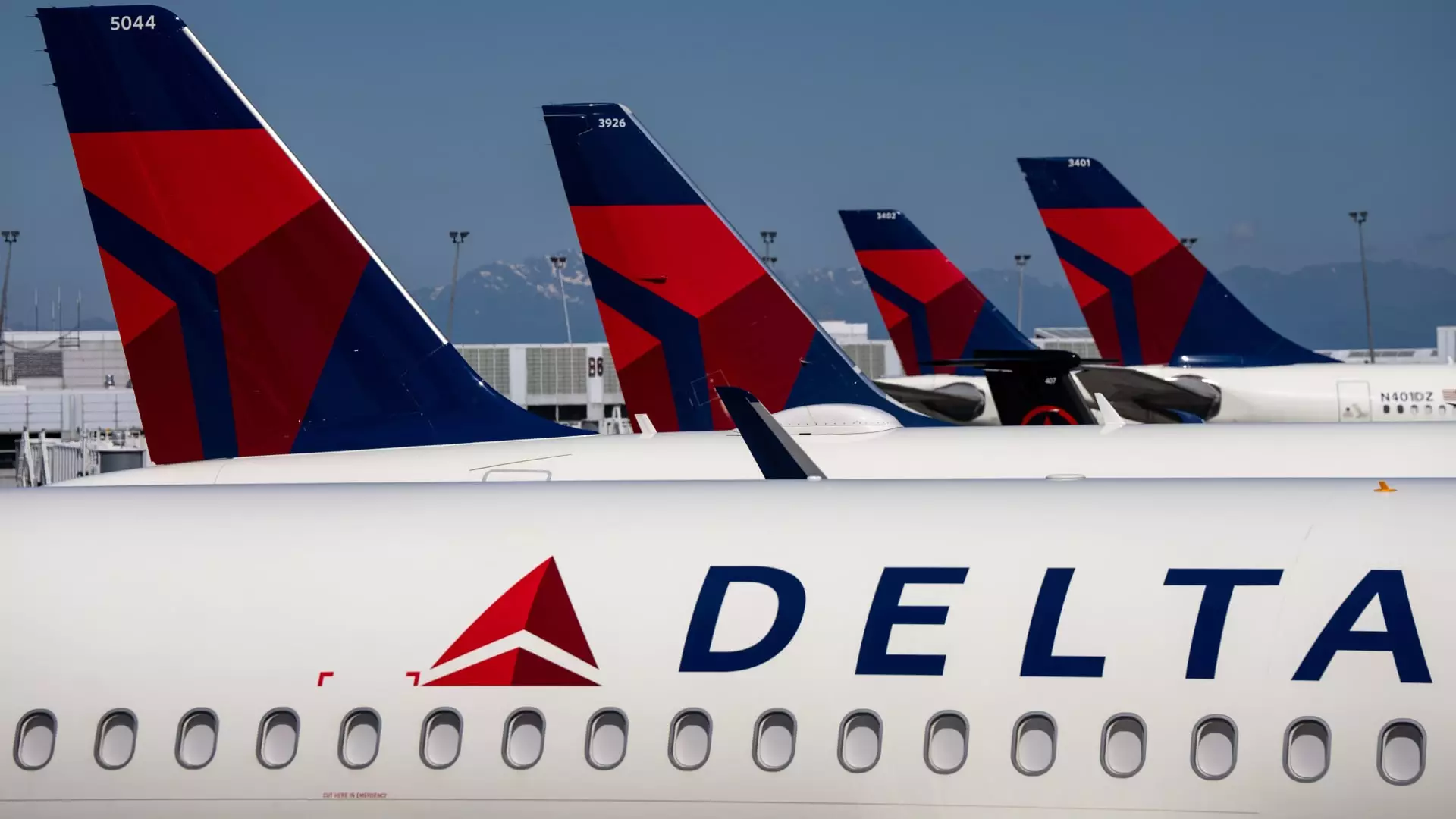Delta Air Lines faced massive flight cancellations in the aftermath of a global IT outage that occurred last month. CEO Ed Bastian pointed fingers at Microsoft and CrowdStrike for the disruptions, claiming that the incident cost the airline around $500 million. The incident, sparked by a faulty software update from CrowdStrike, affected millions of computers running on Microsoft Windows. Despite the chaos that ensued, Delta struggled more than its competitors to recover from the outage, leading to the cancellation of over 5,000 flights.
In response to Delta’s allegations, Microsoft fired back, accusing the airline of failing to keep pace with modernizing its technology infrastructure. Mark Cheffo, a representative of Microsoft, highlighted that Delta had not invested sufficiently in updating its IT systems to benefit its customers, pilots, and flight attendants. The accusations from Microsoft indicated that other airlines like American Airlines and United Airlines were able to bounce back more swiftly from similar incidents, raising questions about Delta’s preparedness.
Delta refuted Microsoft’s claims, stating that the airline has a strong track record of investing in safe, reliable, and elevated service for its customers and employees. The airline revealed that it had made significant investments in IT capital expenditures since 2016, in addition to substantial annual spending on IT operating costs. Delta’s response aimed to showcase its commitment to technological advancements and maintaining a high standard of service delivery.
The feud between Delta and Microsoft escalated with allegations of contractual breaches and gross negligence. Delta accused Microsoft of failing to comply with contractual obligations and acting willfully in connection with the faulty software update. Microsoft, on the other hand, expressed empathy for Delta’s plight due to the IT outage caused by CrowdStrike but criticized the airline for its incomplete, false, and damaging statements regarding the incident. The exchange of letters between the two parties intensified the conflict.
Microsoft’s defense included insights into Delta’s reliance on other technology providers such as IBM and Amazon for critical systems like crew-tracking and scheduling. Despite Microsoft’s offers to assist Delta during the crisis, the airline allegedly turned them down, citing its partnerships with other technology firms. The intricacies of Delta’s IT ecosystem, including the use of IBM’s hybrid-cloud architecture and Amazon Web Services, added complexity to the situation and raised questions about the extent of Microsoft’s involvement in the outage.
The clash between Delta Air Lines and Microsoft underscores the importance of robust IT infrastructure, proactive maintenance, and effective crisis management protocols in the airline industry. Both parties can draw lessons from this incident to enhance their systems, communication channels, and collaboration strategies. Resolving the disputes and rebuilding trust will require transparent dialogue, shared accountability, and a commitment to upholding technological standards in the future.
The technology dispute between Delta Air Lines and Microsoft highlights the vulnerabilities and complexities of IT systems in the aviation sector. While accusations and counterclaims have characterized the aftermath of the IT outage, the focus should now shift towards introspection, cooperation, and innovation to prevent similar incidents in the future. By embracing a collaborative approach and investing in cutting-edge technologies, airlines can mitigate risks, enhance operational efficiency, and deliver exceptional services to passengers.


Leave a Reply